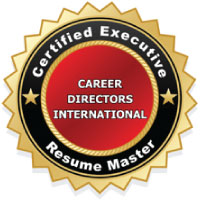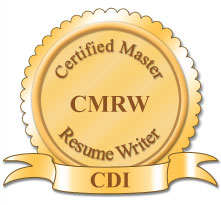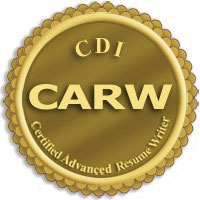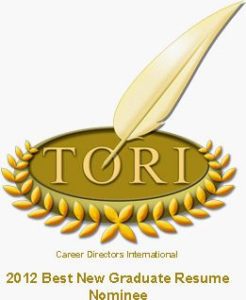 The college admissions scandal that has been all over the news has inspired me to break my recent blogging silence. The greed and lack of integrity exhibited by employees of top universities disturb me greatly. Since I am a Yale graduate, I have received a couple of apologetic letters from President Salovey; I hope that the school’s promise to be more vigilant in its admissions process holds true.
The college admissions scandal that has been all over the news has inspired me to break my recent blogging silence. The greed and lack of integrity exhibited by employees of top universities disturb me greatly. Since I am a Yale graduate, I have received a couple of apologetic letters from President Salovey; I hope that the school’s promise to be more vigilant in its admissions process holds true.
Since I am a college admissions essay coach, I had the opportunity to be interviewed by the media. Both USA Today and Rob Hart of WBBM talked to me about ethics in college admissions. Here are the article and radio clip for your reading and listening pleasure:
- USA Today: Do all students cheat on their college applications? No, consultants say, but there are plenty of problems. “I get calls from people who want me to write essays for them, and I won’t do that,” said Brenda Bernstein, who runs The Essay Expert. “This student is being judged on their own ability. But there are services that do that. And some sell academic essays as well.”
- WBBM Newsradio Show: Essay Coach Talks Best Practices For College Applications
The Dual Life of a Resume Writer and College Essay Coach
What strikes me, in particular, is that many people conflate the ethics of writing a professional’s resume with the ethics of writing a student’s college essay. I keep explaining to reporters and others why they are not the same.
One of my resume writer colleagues posted this comment about the college admissions scandal to my Facebook page:
“Just to be devil’s advocate here, I don’t see the difference between writing essays with information students have given about THEIR story and writing a resume for someone who tells you his / her story about his / her career. We don’t put on the bottom of their resumes that it was written by us. Most executives have their executive assistants write their letters for them. Is that “cheating” by the executive (we have all seen where an executive calls his assistant into the office to take a “memo)? Like I said, just playing devil’s advocate. :-)”
My response:
“There is no assumption or requirement that resumes be written by the job applicant. In fact, many hiring managers say they *prefer* a professionally written resume. There’s also no rule that a student can’t get some coaching and editing help on their essay. English teachers and guidance counselors have been doing this for years. What’s important to me is that the essay is truthful, at the level the student is capable of writing, and in the student’s voice.”
What I would add to the above is that there is most definitely a rule that students must write their own application essays. Admissions committees judge them for the quality of their writing and how they express themselves, because they are going to be required to use those skills in their college careers. By contrast, an executive won’t be expected to write a good resume as part of his or her job.
Moving Toward Truth & Integrity
My job as a college essay coach is to help a student tell the truth – not the version of the truth they think an admissions committee wants to hear. I can’t tell you how many times I’ve asked an applicant, “Is that really true?” and gotten the response, “Well… not completely. But it seems like that’s what I should have gotten out of it.” Again and again, I point the writer to the truth, which is always more interesting than the picture perfect story they thought they should tell.
As a resume writer, too, my job is to tell the truth. The facts speak louder than any flowery language we could write to make something sound better than it is. We stick with the facts.
The cheating uncovered in the recent college admissions scandal goes far beyond helping students think through the best way to tell their story. It goes way past the level of supporting an executive by presenting her accomplishments powerfully in writing. I hope the world recognizes this difference. More important, I fervently wish that parents, college admissions advisors, university administrators and sports coaches choose to act with integrity as they shepherd young adults into what could be the most important four years of their lives.











Bring integrity into college entrance admissions? Quite simple: all the so-called college students who got into college in this manner should be thrown out of these colleges/universities and their spots given to the real deserving students who had to take their second and third choices. In the case of these ‘students’ who have graduated their diplomas should be declared null and void. Let them start over. For those who think that this is the first time this has happened, think again. This time they got caught. The solution seems draconian but in the age we live in where respect, integrity, common decency have become punch lines for jokes this is the way to truly restore any honesty to the process. Just for the record this is the same situation for the steroid cheaters in baseball.
Thank you for your comment, Stuart. I agree that admission should be rescinded for these students. I wish other more deserving students could be granted admission retroactively as well.
As an admissions consultant for many years, primarily focused on graduate school applicants, including having worked with Brenda in various settings, I have to support her comments that we will rather turn down clients than write essays for them. One area that hasn’t come up in the recent articles much but is a major violation is dealing with recommendations. The worst example of this that I’ve seen was an applicant who told me that she and her roommate were both applying to the same school, and they had decided to each submit a fake recommendation for the other and wanted me to draft those. Of course, I immediately told her that I wouldn’t work with her or her roommate at all, period, and cautioned her against this in the strongest language. I’ve also had an occasional client who was called directly by a school to review some items in an application, which seemed as one way that the school was checking that the applicant actually wrote the thing.
My experience over my years doing this work has been that admissions consultants who work through quality organizations, usually having top school degrees themselves, would never do the type of thing that was done by the individual in the news stories. Then again, because my clients all apply to graduate schools, they don’t have the parental keeping up with the Jones’ pressures that the children of movie stars apparently had to deal with, nor nearly the unlimited budgets that their parents apparently had.
P.S. I particularly like Brenda’s comment that her job is to help a student tell the truth. Students are bombarded by outside opinions as to what a school wants to see – from parents, siblings, friends, online opinions, etc. But Brenda is exactly right that the school wants to learn about the real applicant, and there is no one correct answer beyond interestingly telling the truth.
I agree with Brenda and as a resume consultant, the two are totally different. Helping someone frame their job experiences in a way that is telling of their capabilities without just stating that they have certain skills or qualities is critical for a prospective employer to determine if an interview is warranted. Many job applicants haven’t been in the job market recently and knowing what is now expected has often changed from when they were last in the search. Also, recent college graduates often mistake what they want for what an employer wants and helping them communicate in a way that is compelling to a hiring manager is what is needed. As a college professor, whose goal is to make parents “empty nesters” – ensuring that a resume helps the student get a call for an interview is key. It is then the student’s job to get the offer based on their answers and stories in the interview.
Thanks for your insight from a professor’s perspective, Donna! Indeed, job applicants at all levels need education on what makes a good resume.
So interesting Brenda, it reminds me a bit of hundreds? of years ago, parents could save their children from having to serve in the armed forces, essentially paying someone else to serve in their place. I remember hearing also back in Greenwich CT, much more recently, when rich parents would lobby their children into special ed classes just so they could get extra attention and resources. Schools are in need of reform, and money always finds a way to skip over hard work nothing new here. What is interesting is that they are getting caught!
Interesting comparisons, Ellen. I didn’t know about either of them! And yes, seems a lot of people are getting caught doing things that used to fly under the radar. That said, I’m sure there are many more scandals yet uncovered.